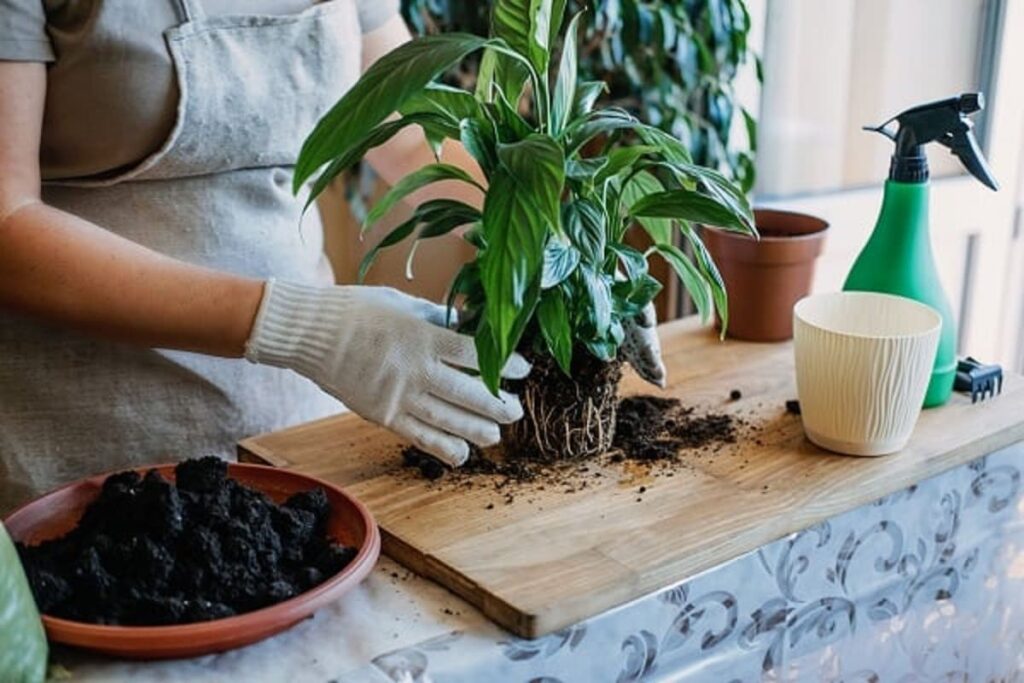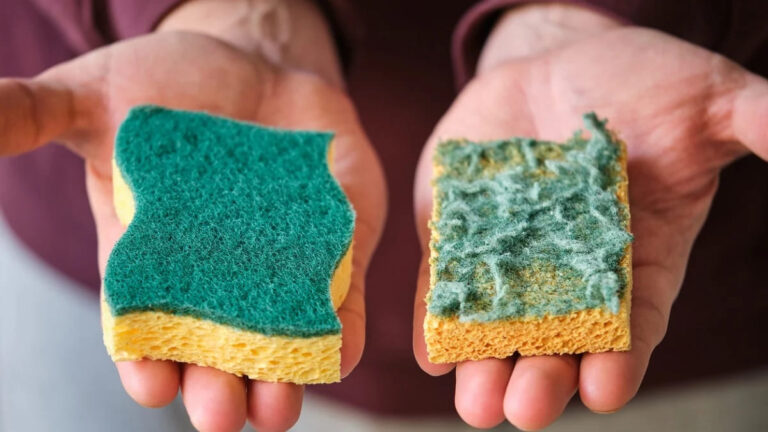When your dish sponges have seen better days, the instinctive move is to toss them in the trash. However, these seemingly worn-out sponges can be a hidden gem for your garden, especially during the summer months.
A Surprising Ally in Your Garden
With summer approaching, gardeners, both professional and amateur, are prepping their plots for the warmer weather. And believe it or not, an old kitchen sponge could become an essential tool in your gardening arsenal.
Most synthetic polyurethane sponges don’t last long. When they start falling apart, it’s usually time to replace them. But instead of throwing them away, you can give them a new lease on life in your garden. They can be particularly useful for keeping your plants hydrated during the scorching summer heat.
Keeping Plants Hydrated in Summer and Winter

The first tip is quite simple: place an old sponge at the bottom of a plant pot. Make sure to disinfect the sponge first since plants don’t appreciate dirty dishwater. You can soak the sponge in a disinfectant for an hour, rinse it thoroughly, and then cut it into small pieces.
Once prepared, place these sponge pieces at the bottom of the pot before adding soil and your chosen plant. The sponge will help maintain optimal moisture levels for the plant’s roots, which is especially beneficial during hot weather or if you’re away and can’t water them regularly.
You can also place a sponge underneath your pots. If you overwater, the sponge will absorb the excess, preventing root rot and ensuring proper drainage.
During winter, sponges can also protect plants from frost. Simply cut the sponge into small pieces and spread them around the base of the plants or cover the roots. This added layer can provide insulation against freezing temperatures.
Giving Your Sponges a Second Life
So next time your disposable sponges are on their last legs, consider these sustainable recycling solutions instead of throwing them out. According to the Consumer Safety Commission, approximately 1.6 billion used sponges are discarded each year in France. Given their short lifespan—barely two days before becoming a haven for bacteria—it’s no surprise.
Many people continue using old sponges despite their rapid degradation. Ideally, for hygiene, you should use at least 52 sponges per year—one per week. This approach, though, isn’t environmentally friendly. But recycling these worn-out sponges for your garden offers a fantastic alternative.
By incorporating these tips, you not only extend the life of your sponges but also contribute to a healthier, more sustainable gardening practice.






